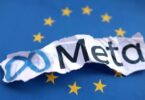Mark Jamison
Russian President Vladimir Putin’s invasion of Ukraine is domestically propped up by misinformation and his propaganda machine, not informed popular support. Putin’s fear of the truth leaking to his citizens is obvious. Look no further than his ruthless efforts to control and bend communications about the conflict, including his move to shut off Russians’ access to Twitter and Meta Platforms’ Facebook and Instagram, along with Moscow’s criminalization of war news that it considers fake.
In order to counter Putin’s offensive in the information war, Western internet platforms must embrace an uncomfortable approach: They should seek to expand access in Russia instead of accepting expulsion and admit Russia’s state-sponsored content, even if doing so looks like a retreat.
Putin feeds his citizens a carefully curated narrative because the war has real costs: Russians are dying, and the Russian economy is crumpling under the West’s sanctions and Russia’s military expenses. And if Putin can get his messages across to Europeans and Americans, he might soften the West’s opposition to his aggression — so his thinking goes. When Facebook banned state-run outlets Russia Today (RT) and Sputnik from its platform in the European Union and United Kingdom, Russia’s communications regulator retaliated by blocking Russians’ access to Facebook. And because Russians and Ukrainians use Facebook, Twitter, and Instagram to voice opposition to the war and share non-Russian media content, the government likewise blocked access to Twitter and Instagram. Netflix has suspended service in Russia as well.
If Meta, Twitter, and other internet-based platforms can find a way re-open in Russia, they might curtail the war effort by showing the Russian people the truth — along with the fate awaiting Russian soldiers sent to Ukraine.
But curtailing the war means Putin accepting some amount of defeat, which is unlikely. It is more likely that he will complete the invasion, at which point the social media companies should fight to uphold free access to all information in Russia and an occupied Ukraine. This would limit both Putin’s ability to hold Ukraine and his broader ambitions.
According to the Hoover Institution’s Richard Service, Putin “sees himself messianically” as an authoritarian leader who can impose stability and deliver Russia to its destiny of greatness. And Putin sees Ukrainians as Russians. Except for perhaps a few Russian loyalists, Ukrainians have rejected this vision. But to make an occupation of Ukraine unbearable for Russia, Ukrainians will need to access outside information, spread their own ideas, and debate with Russians regarding their grim daily reality.
The internet will be the primary place for these crucial communications — which could be hampered by outages and deliberate service disruptions like Meta’s and Twitter’s. To that end, the free flow of information — even false narratives — is crucial in the present conflict.
To its credit, Meta’s president of global affairs Nick Clegg says the company is embracing its key role in maintaining open discourse during the war. But for both governments and internet-enabled platforms alike, this will be an uphill battle even after the present conflict is over — as it was before.
On Twitter, Clegg implied Meta’s restricting of access to RT and Sputnik was done at the behest of European governments. This admission, coupled with suspicions that these social media companies take sides in political disputes, lowers these platforms’ credibility in the eyes of people who are already biased towards Russia. The lack of accepted neutral forums will make it harder for Ukrainians and Russians to develop understanding and mutual respect.
Furthermore, Meta, Twitter, and others should resist the temptation to ban Russian media. Tech companies’ desires to keep dis- and misinformation off of their platforms are understandable. But in this moment, they would be increasing the amount of information available to Russians while doing non-Russian users a favor by letting them see what Russians are seeing. These users would become equipped with an improved understanding of the Russian people, and better conceptualize the differences between honest statements and propaganda. This should not be viewed as buckling to the Kremlin’s demands; threats should generally be met with noncompliance. But the world will be better off if people are exposed to the conflicting narratives at play.
As they carefully balance business needs, regulators’ demands, and ethical obligations, social media platforms should not underestimate the power of free speech and unfettered access to information. Authoritarian regimes restrict communications in part because they cannot let their citizens see how their systems limp along relative to more open societies. Also, it is in the nature of abusers to restrict their victims’ abilities to relate to and engage with others.
Putin is fighting hard for control of communications because his invasion cannot withstand scrutiny. Internet companies can do much to shine a light on what is happening in Ukraine and in Russia; western powers should thus encourage the platforms to fight to remain in Russia and to support freedom of expression. The flood of information, if sustained successfully, will weaken support for Putin’s war and hamper his authoritarian dreams.
Courtesy: (AEI.org)






